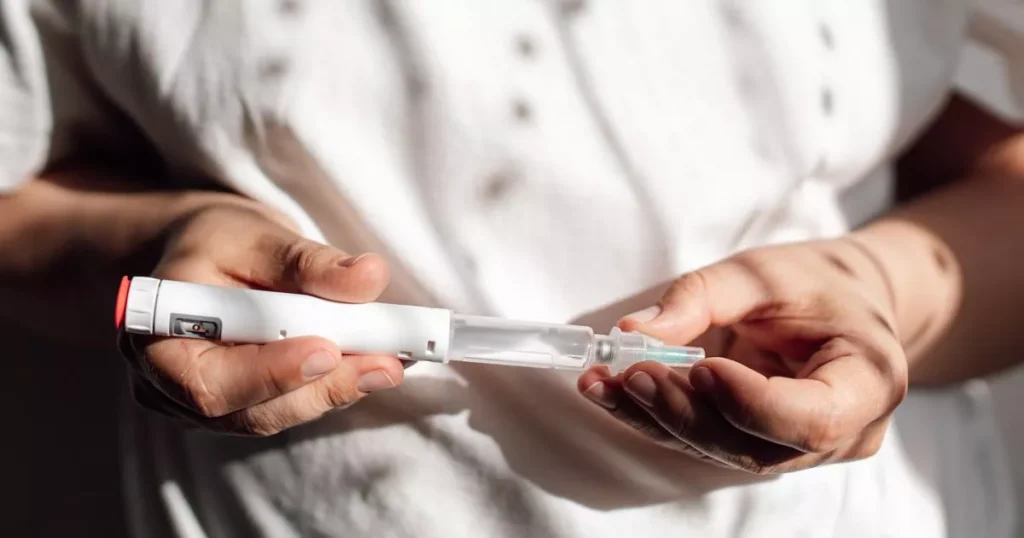Semaglutide has gained popularity as an effective medication for weight loss and managing type 2 diabetes. While it has proven benefits in improving metabolic health and aiding significant weight reduction, some users wonder if it might have unintended side effects, such as changes in libido. Sexual desire, or libido, is influenced by a complex interplay of physical, hormonal, and psychological factors, and any medication that impacts these areas could potentially affect sexual health.
In this blog, we’ll explore whether semaglutide has a direct effect on libido, the factors that might contribute to such changes, and how to address any concerns related to sexual health while on this medication.
What Is Semaglutide and How Does It Work?
Semaglutide is a glucagon-like peptide-1 (GLP-1) receptor agonist originally developed for managing type 2 diabetes and later approved for weight loss under different brand names. This drug works by mimicking the natural hormone GLP-1, which plays a crucial role in regulating blood sugar, appetite, and digestion. When semaglutide is administered, it activates receptors in the pancreas, brain, and stomach.
Recommended: Does Sermorelin Increase Libido?
In the pancreas, semaglutide enhances insulin production while simultaneously decreasing the secretion of glucagon, a hormone that raises blood sugar. This dual action helps stabilize glucose levels. In the brain, it acts on the hypothalamus to suppress appetite, making individuals feel less hungry and more satisfied with smaller meals. Additionally, it slows gastric emptying, meaning food remains in the stomach longer, contributing to prolonged satiety.

These mechanisms make semaglutide highly effective in controlling blood sugar and promoting weight loss. However, its effects on other systems of the body, such as hormonal regulation and mood, have led to questions about its impact on sexual health, particularly libido.
Understanding Libido and Factors Influecing it
Libido refers to sexual desire, and it is influenced by a combination of biological, psychological, and lifestyle factors. Biologically, hormones like testosterone and estrogen play key roles in regulating libido. When hormone levels drop, particularly with age or during menopause, sexual desire can decrease. Additionally, overall health can affect libido—chronic conditions, medications, or poor physical health may reduce energy and interfere with sexual desire.
Psychological factors also play a significant role. Mental health issues such as depression, anxiety, or stress can lower libido, as can negative body image or lack of emotional closeness in relationships. On the other hand, positive self-esteem and healthy relationships often enhance libido.
Recommended: Can a Common Cold Cause Erectile Dysfunction?
Lifestyle factors, such as regular exercise, proper nutrition, and adequate sleep, also influence sexual desire. Physical activity increases energy and mood, which can help boost libido. Poor diet or lack of sleep, however, can contribute to a reduced sex drive. External influences like stress or past trauma can further affect libido, as can certain medications, including antidepressants, which are known to lower sexual desire.
In summary, libido can fluctuate over time due to a variety of factors, and any significant or lasting changes in desire may warrant medical attention.
Connection Between Semaglutide and Libido
The connection between semaglutide and libido is not fully established, but there are ways in which the medication could indirectly affect sexual desire. Semaglutide is used primarily to manage type 2 diabetes and aid in weight loss by mimicking the GLP-1 hormone, which regulates blood sugar and appetite.

One way semaglutide might impact libido is through its effect on energy levels. The medication suppresses appetite and slows gastric emptying, often leading to weight loss. While this weight loss can improve health and self-esteem, some users experience side effects like fatigue, nausea, or gastrointestinal discomfort. These effects may reduce energy levels, making individuals less inclined toward sexual activity.
Recommended: Does Sea Moss Help With Erectile Dysfunction?
Moreover, semaglutide’s regulation of blood sugar and weight loss may influence hormones such as insulin and sex hormones, which can either increase or decrease libido. For some, better blood sugar control and weight loss boost self-esteem and body confidence, enhancing sexual desire. However, rapid or extreme weight loss may disrupt hormonal balance, temporarily lowering libido.
Does Semaglutide Directly Cause Decreased Libido?
Semaglutide does not directly cause a decrease in libido, but its effects on the body may indirectly impact sexual desire. The medication helps regulate blood sugar levels, suppress appetite, and promote weight loss, which can influence energy levels and hormones.
Side effects such as fatigue, nausea, or gastrointestinal discomfort might reduce overall energy, making individuals less interested in sexual activity. Additionally, weight loss can affect hormones, either boosting or reducing libido. For some, weight loss may improve self-esteem and body confidence, potentially enhancing libido, while rapid weight loss may disrupt hormonal balance and cause a temporary decrease in sexual desire.
How Semaglutide May Affect Libido
Semaglutide may affect libido indirectly through its impact on energy, hormones, and overall well-being. While the medication itself is not directly linked to changes in sexual desire, several factors associated with its use could influence libido.
Energy Levels
Semaglutide helps with weight loss by suppressing appetite and slowing gastric emptying. While weight loss is generally beneficial, some individuals may experience side effects like fatigue, nausea, or gastrointestinal discomfort. These can lower energy levels, which may reduce interest in sexual activity.
Hormonal Changes
Semaglutide affects blood sugar control and may influence hormone levels, including insulin and sex hormones. For some individuals, weight loss and improved blood sugar control could enhance self-esteem and body confidence, leading to a boost in libido. However, rapid weight loss may disrupt hormonal balance and temporarily decrease sexual desire.
Recommended: Where do You Put TENS Pads for Erectile Dysfunction?
Psychological Factors
Weight loss can improve self-esteem and body image, which might increase libido. However, extreme or rapid weight loss might cause temporary emotional stress, which could reduce sexual desire.
How to Manage Any Decrease in Libido While on Semaglutide
If you’re experiencing a decrease in libido while taking semaglutide, there are several strategies that can help manage this side effect and improve sexual desire:
Maintain a Healthy Lifestyle
Ensure you’re eating a balanced diet, exercising regularly, and getting enough sleep. Physical activity can improve energy levels, reduce stress, and boost mood, all of which may enhance libido.
Manage Stress

High-stress levels can negatively affect libido. Consider relaxation techniques such as yoga, meditation, or deep breathing exercises to reduce stress and improve your overall well-being.
Consult Your Healthcare Provider
If you’re experiencing significant changes in libido, speak to your doctor. They can assess whether the decrease is related to semaglutide or other factors and may adjust your treatment plan or recommend additional support.
Address Side Effects
If you’re dealing with side effects like fatigue, nausea, or gastrointestinal discomfort, try adjusting your diet or lifestyle to alleviate these symptoms. Your doctor may also suggest ways to manage or reduce these effects.
Recommended: Can I Use Hydrogen Peroxide For Prostate Health?
Focus on Emotional Intimacy
Emotional connection with a partner can help improve sexual desire. Taking time to communicate and foster intimacy in relationships can be beneficial if physical libido is temporarily reduced.
Allow Time for Adjustment
If you’re new to semaglutide, give your body time to adjust. Initial changes in weight, hormones, and energy levels can affect libido, but this may improve as your body adapts.
General conclusion
While semaglutide is not directly linked to a decrease in libido, its impact on energy levels, weight, and hormones can potentially influence sexual desire in some individuals. The medication’s side effects, such as fatigue, nausea, and gastrointestinal discomfort, may indirectly affect libido. However, many factors can contribute to changes in sexual desire, and these may vary from person to person.
Managing lifestyle factors like stress, diet, and exercise, as well as addressing side effects with the help of a healthcare provider, can help mitigate any decrease in libido. By adopting a holistic approach to health and well-being, individuals taking semaglutide can maintain a balanced and fulfilling life, both physically and emotionally.
